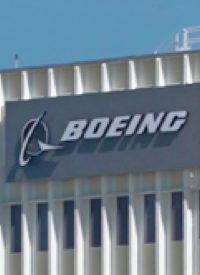
Acting on a complaint by the machinists union, the National Labor Relations Board (NLRB) cast a politically charged lawsuit at Boeing in April, contending that the aerospace company usurped labor laws by launching the production line in South Carolina, rather than Washington state. The agency alleged that Boeing had introduced the line to punish union workers for past strikes, which the NLRB deemed illegal retaliation against workers exercising their right to strike and bargain collectively.
Also part of the Boeing-union deal is a guarantee to manufacture a new, more fuel-efficient airplane, the 737 Max, at facilities in Renton, Washington, which is located near Seattle. Union leaders said they are pleased with the deal and have issued assurances that if it reaches final approval, the union will ask the NLRB to drop the case. "If this agreement is ratified, we will engage the government in discussion and inform them that our issues with the Boeing Company are behind us," assured Tom Wroblewski, president of District Lodge 751, which represents 28,000 workers in the Puget Sound area.
While the NLRB has final say on whether to drop the case, the union's newfound grace toward Boeing will likely influence the board’s action, critics observe. "The tentative agreement is subject to ratification by the employees, and, if ratified, we will be in discussions with the parties about the next steps in the process," asserted Lafe Solomon, general counsel at the labor board. The discussions are "a very significant and hopeful development," he added.
Boeing and the union said the deal, settled 10 months before the contract’s expiration, stands to renew a productive and cordial relationship between the two. Boeing spokesman Tim Healy said the revamped contract is "a starting point of a new relationship with the IAM [International Association of Machinists]." James Albaugh, president and chief executive of Boeing Commercial Airplanes, trumpeted a similar response, asserting that "building the 737 Max in Renton will secure a long and prosperous future there, as well as at other sites in the Puget Sound area and in Portland, Ore., where 737 parts are built." The company announced in a press release:
Boeing appreciates the sincere efforts of IAM leadership at all levels for the open and constructive dialogue across a range of issues that led to this tentative agreement. We are hopeful that employees covered under the current contract will see the advantages in, and importance of, this agreement and the expressed desire of the company and the union to work toward mutual objectives that support both improved competitiveness and increased job opportunities.
The NLRB’s lawsuit, which stemmed from the IAM’s contentions of corporate illegality, became a heated political battle last month, pitting congressional Republicans and Democrats against each other, dropping a barricade between the governments of South Carolina and Washington state, and even drawing GOP presidential candidates into the mix.
Although the labor board is an independent agency, it is overwhelmingly ruled by Obama appointees, which opened the door to fervent criticism from GOP presidential candidates. Indeed, Mitt Romney was one to capitalize on Republican voters’ disdain for union pandering during an October 11 GOP debate: "We also have to have the rule of law. By that I mean, you can't have the federal government through its friends at the National Labor Relations Board saying, to a company like Boeing, that you can't build a factory in a non-union state. That's simply wrong and it violates the principle of the rule of law."
The liberty-minded Ron Paul also spotlighted the NLRB’s case on his website, writing that Obama’s support of the decision was tantamount to a "war on jobs," as well as a blatant abuse of states’ legislative rights:
Since South Carolina is a right-to-work state, workers at Boeing’s new plant can’t be forced under the threat of losing their jobs to hand over a portion of their hard-earned money to union officials in dues.
The labor board’s attempt to force Boeing to stay in a non-right-to-work state where the union bosses can force workers to pay up or be fired is political payback for their undying support during the last presidential campaign.
If the Obama administration succeeds, it could result in the virtual destruction of right-to-work laws all across the country: No longer could private companies decide for themselves where to move or open new facilities; the government would now take on that responsibility and make decisions based solely on what benefits the big-labor elite. Right-to-work states would be left out in the cold.
In response to Wednesday’s announcement, Washington state Governor Chris Gregoire commended Boeing and union leadership for reaching a deal that "shows a strong commitment by both sides to secure the future of aerospace in Washington state."
However, some industry analysts question the "fairness" of the contract, calling it an unusually generous offer, and a desperate plea by Boeing to put a definitive end to a tumultuous era of union hostility. Indeed, machinist workers went on strike five times since 1977 — including a 58-day strike in 2008 that cost Boeing a whopping $1.8 billion — which trampled production and cost the company billions of dollars.
Submitting to the Machinists union’s demands, and surrendering to the federal government’s seemingly unbounded labor authority, critics note, is simply a yielding attempt by Boeing executives to cut their losses.
Photo: AP Images



